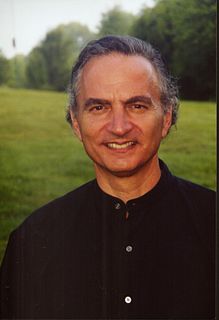A Quote by Marshall Goldsmith
If we can stop, listen, and think about what others are seeing in us, we have a great opportunity. We can compare the self that we want to be with the self that we are presenting to the rest of the world. We can then begin to make the real changes that are needed to close the gap between our stated values and our actual behavior.
Related Quotes
Most of us live our lives desperately trying to conceal the anguishing gap between our polished, aspirational, representational selves and our real, human, deeply flawed selves. Dunham lives hers in that gap, welcomes the rest of the world into it with boundless openheartedness, and writes about it with the kind of profound self-awareness and self-compassion that invite us to inhabit our own gaps and maybe even embrace them a little bit more, anguish over them a little bit less.
Before making peace, war is necessary, and that war must be made with our self. Our worst enemy is our self: our faults, our weaknesses, our limitations. And our mind is such a traitor! What does it? It covers our faults even from our own eyes, and points out to us the reason for all our difficulties: others! So it constantly deludes us, keeping us unaware of the real enemy, and pushes us towards those others to fight them, showing them to us as our enemies.
Some might say that looking inside of ourselves for spiritual truths is egocentric and selfish, and that egolessness and selflessness lie in working for others in the world. But until we find our inner truth, our work in the world will always revolve around our 'selves'. As long as we think about the world in terms of 'self' and 'others', our actions will be selfish. Our 'self' follows us wherever we go, so positive results will be limited.
Emotional dependence is the opposite of emotional strength. It means needing to have others to survive, wanting others to "do it for us," and depending on others to give us our self-image, make our decisions, and take care of us financially. When we are emotionally dependent, we look to others for our happiness, our concept of "self," and our emotional well-being. Such vulnerability necessitates a search for and dependence on outer support for a sense of our own worth.
I think that when you're exploring themes of humanity and what defines a hero and what makes us our best self and what makes us our worst self, you're going to stumble into territories of societal issues and that kind of thing. Sometimes you have accidents where you're not trying, but then the opportunity just presents itself. and you lean into it.
Compassion allows us to use our own pain and the pain of others as a vehicle for connection. This is a delicate and profound path. We may be adverse to seeing our own suffering because it tends to ignite a blaze of self-blame and regret. And we may be adverse to seeing suffering in others because we find it unbearable or distasteful, or we find it threatening to our own happiness. All of these possible reactions to the suffering in the word make us want to turn away from life.
It’s in our interest to take care of others. Self-centrednes s is opposed to basic human nature. In our own interest as human beings we need to pay attention to our inner values. Sometimes people think compassion is only of help to others, while we get no benefit. This is a mistake. When you concern yourself with others, you naturally develop a sense of self-confidence . To help others takes courage and inner strength.
Stressing the practice of living purposefully as essential to fully realized self-esteem is not equivalent to measuring an individual's worth by his or her external achievements. We admire achievements-in ourselves and others-and it is natural and appropriate for us to do so. But that is not the same thing as saying that our achievements are the measure or grounds of our self-esteem. The root of our self-esteem is not our achievements but those internally generated practices that, among other things, make it possible for us to achieve.
If the denial of death is self-hatred, as it is to deny our freedom and live in fear of death (which is to say, to live in a form of bondage), then the acceptance and affirmation of death is indeed a form of self-love. But I'd want to make a distinction between a form of self-love which is essential to what it means to be human, and a narcissism of self-regard, like Rousseau's distinction between amour de soi and amour propre, self-love and pride.
Our conduct has a direct influence on how people think about the gospel. The world doesn't judge us by our theology; the world judges us by our behavior. People don't necessarily want to know what we believe about the Bible. They want to see if what we believe makes a difference in our lives. Our actions either bring glory to God or misrepresent His truth.






































